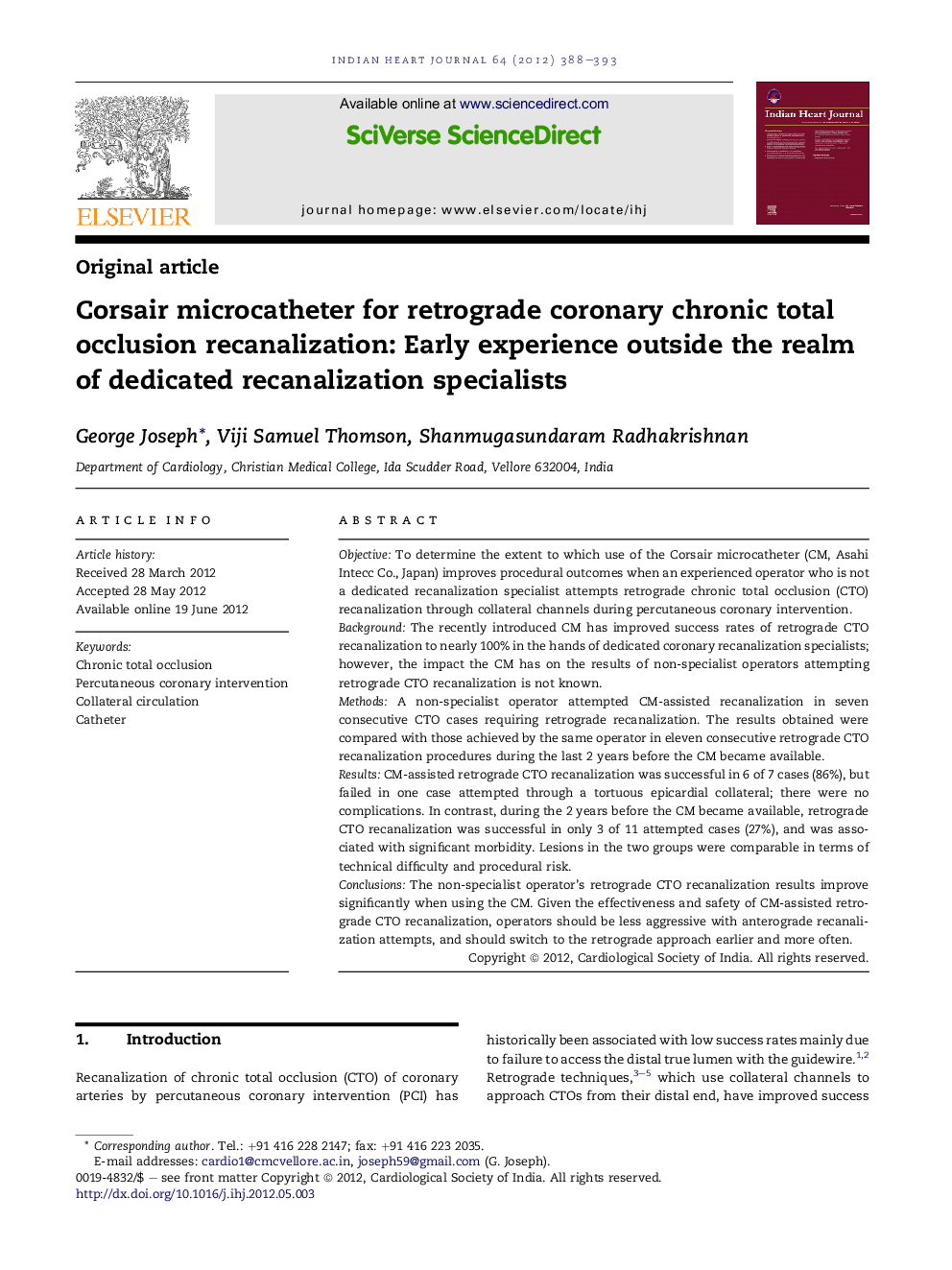| Article ID | Journal | Published Year | Pages | File Type |
|---|---|---|---|---|
| 5962284 | Indian Heart Journal | 2012 | 6 Pages |
ObjectiveTo determine the extent to which use of the Corsair microcatheter (CM, Asahi Intecc Co., Japan) improves procedural outcomes when an experienced operator who is not a dedicated recanalization specialist attempts retrograde chronic total occlusion (CTO) recanalization through collateral channels during percutaneous coronary intervention.BackgroundThe recently introduced CM has improved success rates of retrograde CTO recanalization to nearly 100% in the hands of dedicated coronary recanalization specialists; however, the impact the CM has on the results of non-specialist operators attempting retrograde CTO recanalization is not known.MethodsA non-specialist operator attempted CM-assisted recanalization in seven consecutive CTO cases requiring retrograde recanalization. The results obtained were compared with those achieved by the same operator in eleven consecutive retrograde CTO recanalization procedures during the last 2 years before the CM became available.ResultsCM-assisted retrograde CTO recanalization was successful in 6 of 7 cases (86%), but failed in one case attempted through a tortuous epicardial collateral; there were no complications. In contrast, during the 2 years before the CM became available, retrograde CTO recanalization was successful in only 3 of 11 attempted cases (27%), and was associated with significant morbidity. Lesions in the two groups were comparable in terms of technical difficulty and procedural risk.ConclusionsThe non-specialist operator's retrograde CTO recanalization results improve significantly when using the CM. Given the effectiveness and safety of CM-assisted retrograde CTO recanalization, operators should be less aggressive with anterograde recanalization attempts, and should switch to the retrograde approach earlier and more often.
